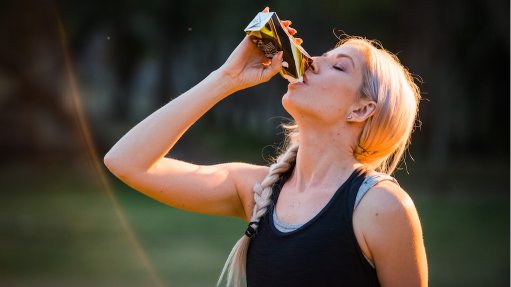
DESIGNED FOR TODAY Cartons are lightweight and convenient, and their comprising fully recyclable materials means they are sustainable and ecofriendly
Food processing and packaging solutions company Tetra Pak showcased the advantages of carton packaging for food and drink products during a live food preparation event at Sandton-based culinary school Pick n Pay Good Food Studio, last month.
The event showcased the ways in which carton packaging for dairy, juice and food could be a healthy, sustainable option that met modern lifestyle needs.
Tetra Pak South Africa communications director Penny Ntuli says carton packaging protects healthy and nutritious food, is sustainable and environment friendly, and is convenient the for busy, modern lifestyle.
Carton packs produced by Tetra Pak are made using six layers, primarily of wood fibre resources to produce paperboard, which the company points out is renewable – a resource overseen by international responsible forest management nonprofit organisation the Forest Stewardship Council. The packs also include a foil layer, which blocks out light and outside air, and a plastic laminate, which prevents leaks.
Another key element of carton packaging is its frequent use of resealable plastic caps, which are manufactured using sugar cane to produce a biodegradable plastic. The same plastic is used for the protective coatings on the Tetra Pak cartons. This extensive use of environment-friendly materials results in Tetra Pak cartons being 100% recyclable in South Africa. Some countries around the world do not have the infrastructure suitable for recycling liquid cartons.
According to Tetra Pak, the process of recycling a carton is straightforward, starting with collecting the cartons and subequent processing through agitation in a hydropulper. The pulping machinery separates the six layers of paper fibre, plastic and foil that constitute carton packs. Following this, the output recycled materials (paper fibre, plastic and foil) can be used to make new products.
A key advantage of carton packaging is its convenience, owing to its being lightweight, portable and easy to reseal, allowing for surplus product to be stored for later use.
In addition, no preservatives are used in Tetra Pak’s carton-packaged food and beverage products; ultrahigh-temperature (UHT) processing is used to remove ‘bad bacteria’ while preserving the ‘good bacteria’. Using UHT technology means that carton-packaged food and beverage products have a shelf life of at least six months without the need for refrigeration prior to opening.
Tetra Pak describes the UHT process as making the food and beverage products “commercially sterile” while they are packaged into the cartons, thereby “killing the germs harmful to humans”. UHT involves the flash heating of the product to a high temperature for a few seconds. Such temperatures depend on the individual product. “Flash heating preserves the original product’s natural goodness and nutritional content,” the company states.
Further, Tetra Pak notes that carton packaging offers the convenience of small-portion sizes, and the knowledge that the packs are made from a recyclable resource.
Being lightweight, carton packaging also reduces carbon dioxide emissions during the transport of the final products throughout the entire supply chain, as less energy is required. Not needing refrigeration has the same effect, thereby reducing the overall carbon footprint of product in cartons.